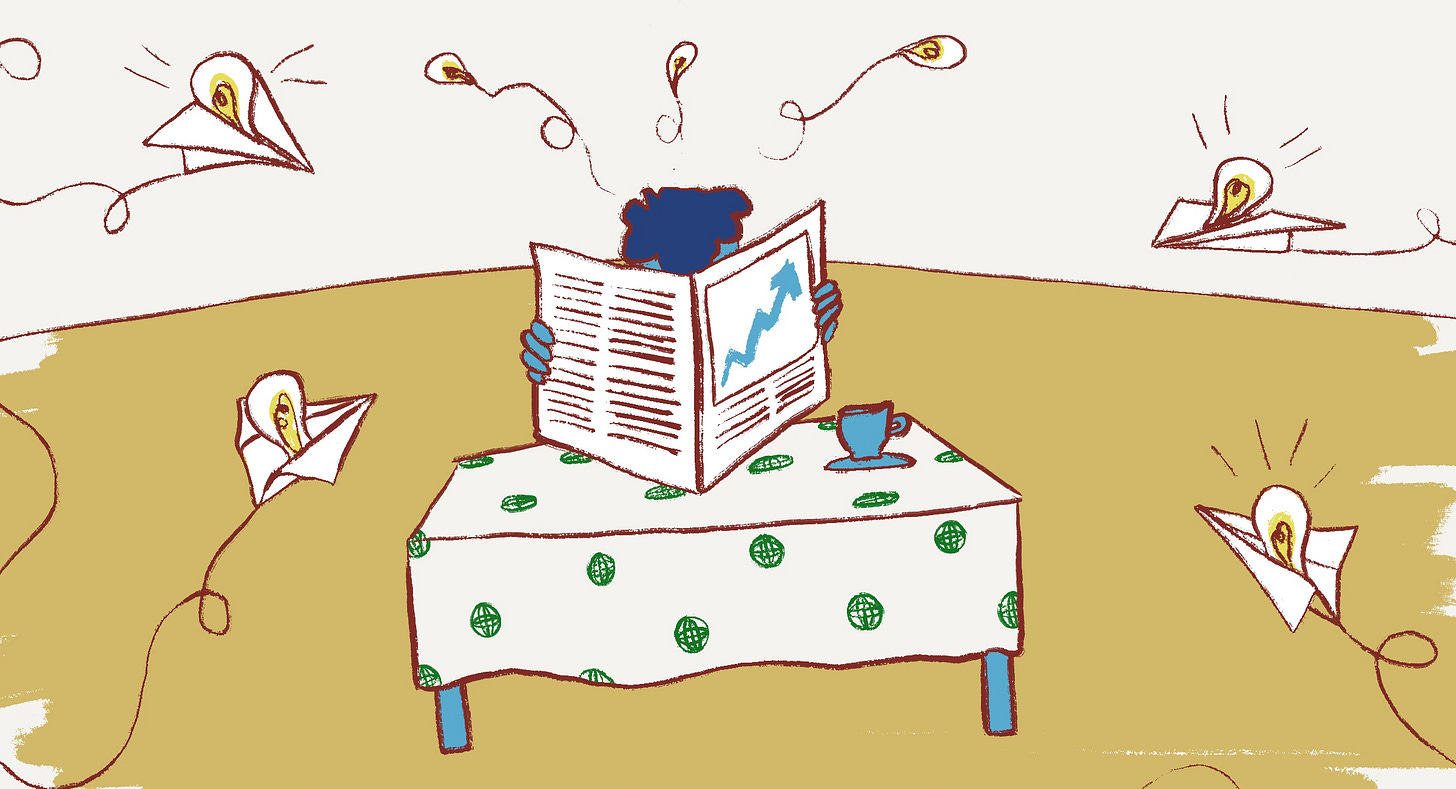Can value sprout from nothing?
Ideas Economy begins with a fascination: how might ideas create value? Fleeting thoughts, when harnessed, become vehicles for wealth creation, cultural influence, human connection, and a better quality of life. Every product, service, organisation - even empire - begins with an idea. That fruit starts with a seed. And a seed of imagination, when nurtured, becomes remarkable value.
Creative economies thrive when imagination is channelled through skill, entrepreneurship, and bold models of value creation. We bring ideas to life through storytelling, strategy, engineering, and artistry.
Those who can turn the abstract into the intangible become the visionaries shaping our world.
Ideas Economy is a space for exploring the capital of ideas.
We investigate the systems, industries, and individuals driving idea-based innovation, and connect a global community of creatives, founders, and thinkers curating the future.
Expect two types of insight.
I write about the capital of ideas from two perspectives:
Though Essays, delivered every Wednesday: intellectually sharp and playful observations that prompt you to think differently about things, the large and the mundane alike.
Mental Models, delivered on the first Tuesday of the month: These reports are synthesised findings from current data, research, and cultural trends. Pocket-sized and memorable, designed to be easily applicable references as you work.
Industries relevant to Ideas Economy
While all sectors must innovate to survive, Ideas Economy specifically focuses on those which rely most on the capital of ideas for their everyday functioning. This includes:
Entertainment and media, including music, theatre, film, publishing, gaming, and creative industries that depend on storytelling and creative production.
Arts and culture, which is built on creative and intellectual output.
Consulting and strategy, notably, professional services that offer ideas as solutions to complex problems.
Finance and venture capital, which rely on intellectual foresight to spot promising startups.
Fashion and design, requiring consistent aesthetic innovation and trend forecasting.
Non-profit and social innovation, encompassing those organisations focused on achieving social welfare.
Sir Ken Robinson (who delivered the most watched TED talk of all time) describes creativity as the ability to generate original ideas that have value. What allows our ideas to flourish is the second part. How might we create value, once our ideas arrive? And what are we to do with them? This is where we begin.
People who should read Ideas Economy
This platform is for you if you driven to solve the pressing issues in our world today, both complex and innocuous, you are drawn to design futures, the innovative, and the insightful.
If you’re part of a company, an Ideas Economy subscription is intentionally priced to comfortably sit within your subscriptions budget. Here is an email template to request to expense Ideas Economy to the company.
About Rachel O’Brien, the author
I am a Strategy Consultant, entrepreneur, and creative that investigates the capital of ideas, where creativity and business practices intersect, and therefore how we might best direct culture, innovation, and systems design. I work across industries and have acted as either an owner-operator, strategist, or area specialist across entertainment, theatre, food and agriculture, not-for-profit, luxury retail, and manufacturing.
Australian by background, I have an MBA from the University of Western Australia, a BA (Design) from Curtin University, and an Adv Dip (Contemporary Music) from the Western Australian Academy of Performing Arts.
You can learn about my consultancy at rachelobrien.work.




